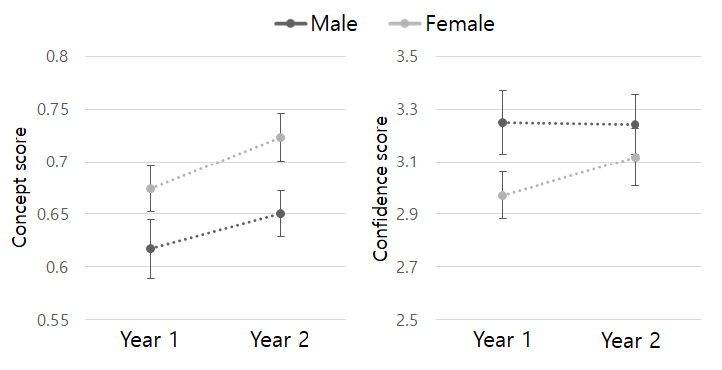Abstract
This study explored the overconfidence bias and hard-easy effects of students' biological concept levels and self-monitoring accuracy. To this end, 361 high school first and second grade students participated in the study. As a consequence of this study, there were differences between genders or years in the four types of knowledge-confidence and significant differences between genders in specificity. As a result of clustering model analysis, hard-easy effects were found in a large number of students, and there were many cases in which the tendency to overconfidence was noticeable. Based on these findings, it was suggested that students should be educated to recognize and reduce hard-easy effects and overconfidence bias through different educational strategy between student groups.
Figures & Tables

Fig. 1. Conceptual scores and confidence scores between genders and years


